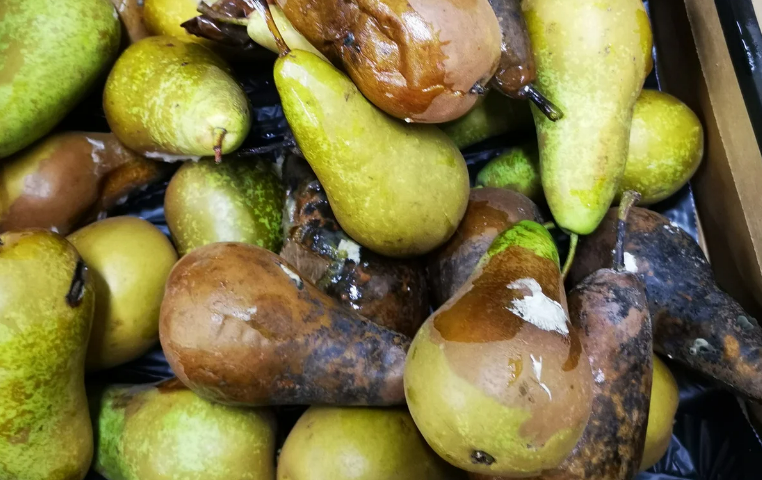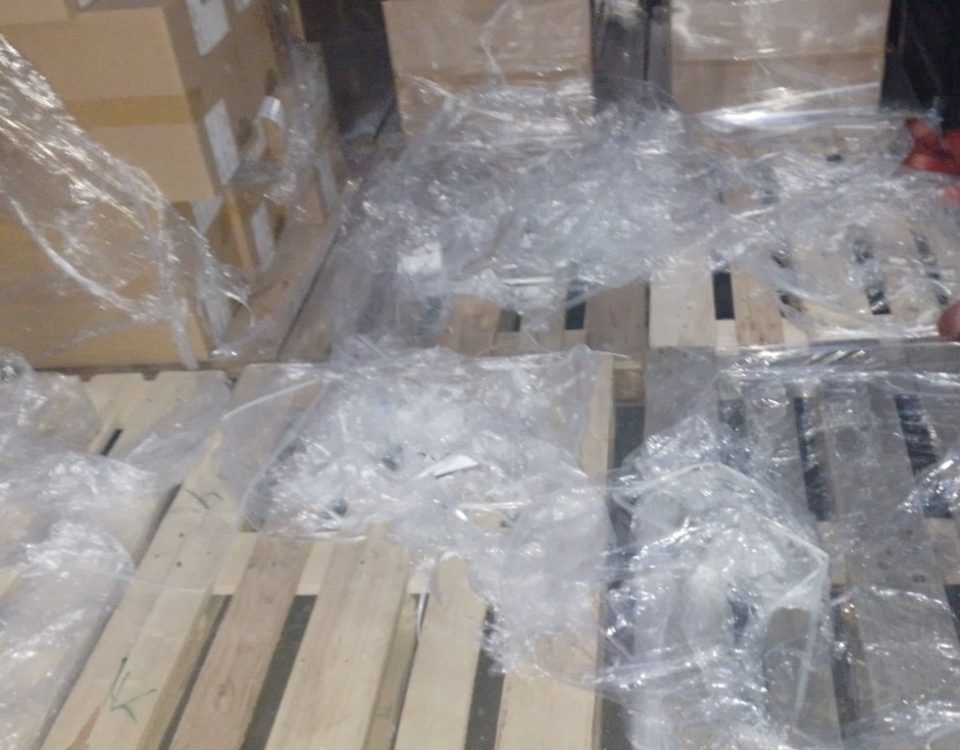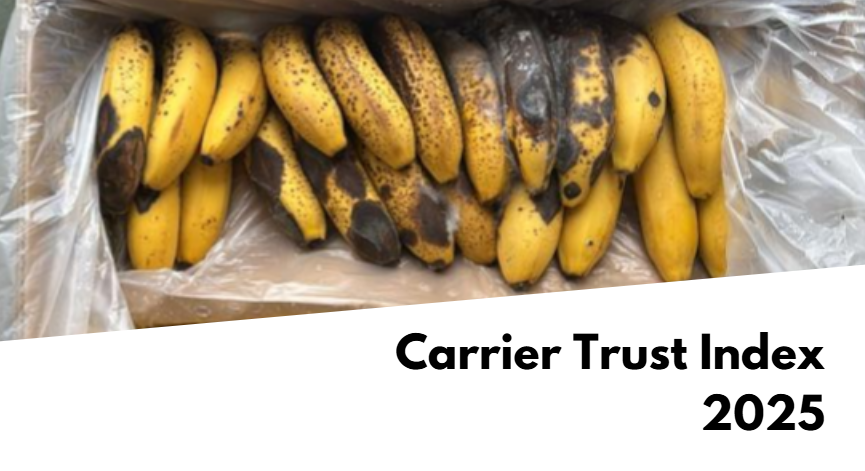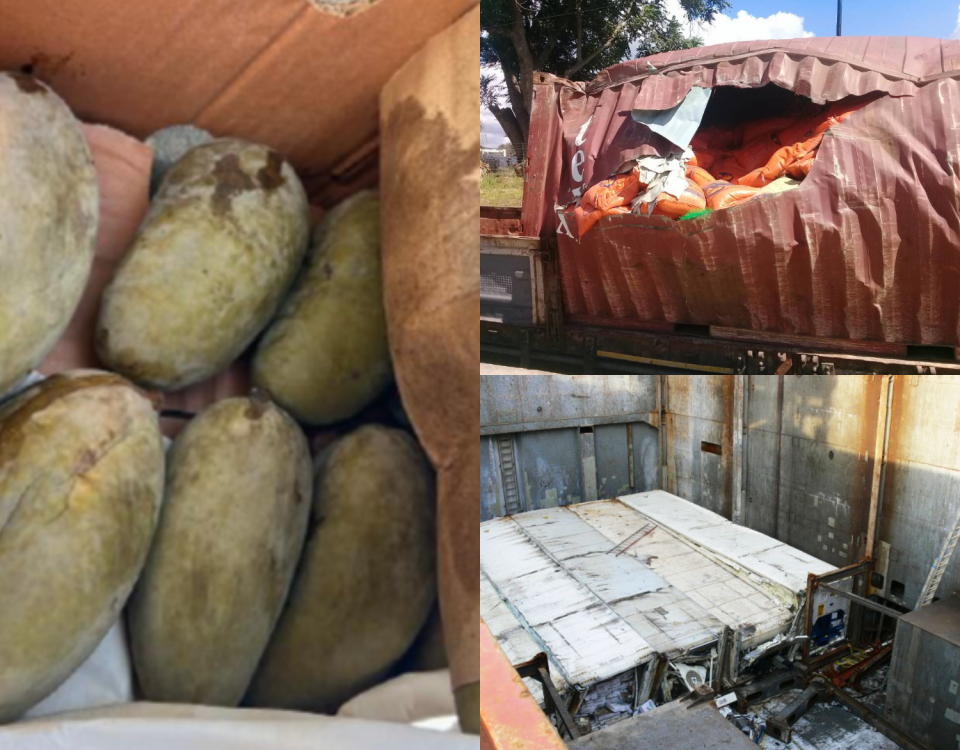Four Myths in Fresh Produce Cargo Claims

Concealed Cargo Damage Claims
January 26, 2024
Optimizing Your Reefer Cargo Claims Recovery
February 9, 2024In the recent Fruit Logistica Berlin 2024, Recoupex Founder and Managing Director, Dr. Lina Jasutiene, had a Logistics Hub session about debunking these four myths in fresh produce cargo claims. While a lot of our clients and audience have attended, we don’t want anyone to miss out on this valuable information.
Cargo claims in the fresh produce industry can be a source of stress for exporters and importers alike. Misconceptions and myths surrounding these claims often lead to confusion and hinder effective resolution. Let’s debunk the four biggest myths of fresh produce cargo claims and provide practical insights to this process.
Myth 1: False Security of Marine Insurance
Many believe that having marine insurance provides complete protection against cargo damage during transit. However, this is not always the case. Marine insurance policies vary widely in coverage, and it’s essential to understand the specifics of your policy. For example, some policies may exclude certain types of damage or have limitations based on the mode of transportation.
Example: Suppose a shipment of delicate berries is damaged due to temperature fluctuations during transit. If your marine insurance policy doesn’t cover temperature-related damage, you may not be fully protected despite having insurance. It is why some exporters skip insurance altogether and it’s crucial to review your insurance policies and coverage.
Myth 2: Claim Amount is Too Small
Some exporters or importers may hesitate to file a cargo claim for what they perceive as a small amount of damage. However, every claim, regardless of size, deserves attention and resolution. Even seemingly minor damages can add up over time and significantly impact your business’s bottom line.
Example: Let’s say a shipment of avocados arrives with minor bruising, resulting in a loss of a few hundred dollars. While the individual claim amount may seem small with the help of mitigation procedures, ignoring such damages can lead to larger financial losses in the long run if left unaddressed.
Myth 3: If I Claim, Shipping Line Will Blacklist Me
There’s a common misconception that filing a cargo claim will lead to blacklisting by shipping lines. However, reputable carriers understand that cargo damage is an inevitable part of the transportation process, and filing legitimate claims is a right afforded to shippers. Shipping lines prioritize fair resolution and customer satisfaction over punitive measures.
Example: An importer discovers significant damage to a shipment of citrus fruits upon arrival. Despite concerns about potential blacklisting, they file a claim with the shipping line. The carrier promptly initiates an investigation and offers a fair settlement, demonstrating their commitment to resolving claims fairly.
Myth 4: Be Patient, Carrier is Investigating Your Claim
While it’s crucial to allow carriers sufficient time to investigate claims, prolonged delays in resolution can be detrimental to your business. Some carriers may use extended investigations as a tactic to delay or discourage claims, especially nearing the time-bar for filing. It’s essential to maintain proactive communication and follow up on the status of your claim to ensure a timely resolution.
Example: A shipper reports cargo damage to a carrier and is assured that an investigation will be conducted promptly. However, weeks pass without any updates on the claim status. By following up regularly and requesting updates, the shipper maintains pressure on the carrier to expedite the resolution process.
In conclusion, debunking these myths is crucial for an effective cargo claims recovery in the fresh produce industry. Don’t let misconceptions hinder your ability to resolve cargo claims effectively.
Stay informed, assert your rights, and prioritize the resolution of cargo damage for safe travels and fruitful shipments. 🌍🍇
Recoupex is a hub of transport lawyers – experts in cargo claims. We assess your case quickly. We have successfully recovered claims from Maersk, Sealand, Hapag-Lloyd, Mediterranean Shipping Company – MSC, CMA CGM, and other carriers.



